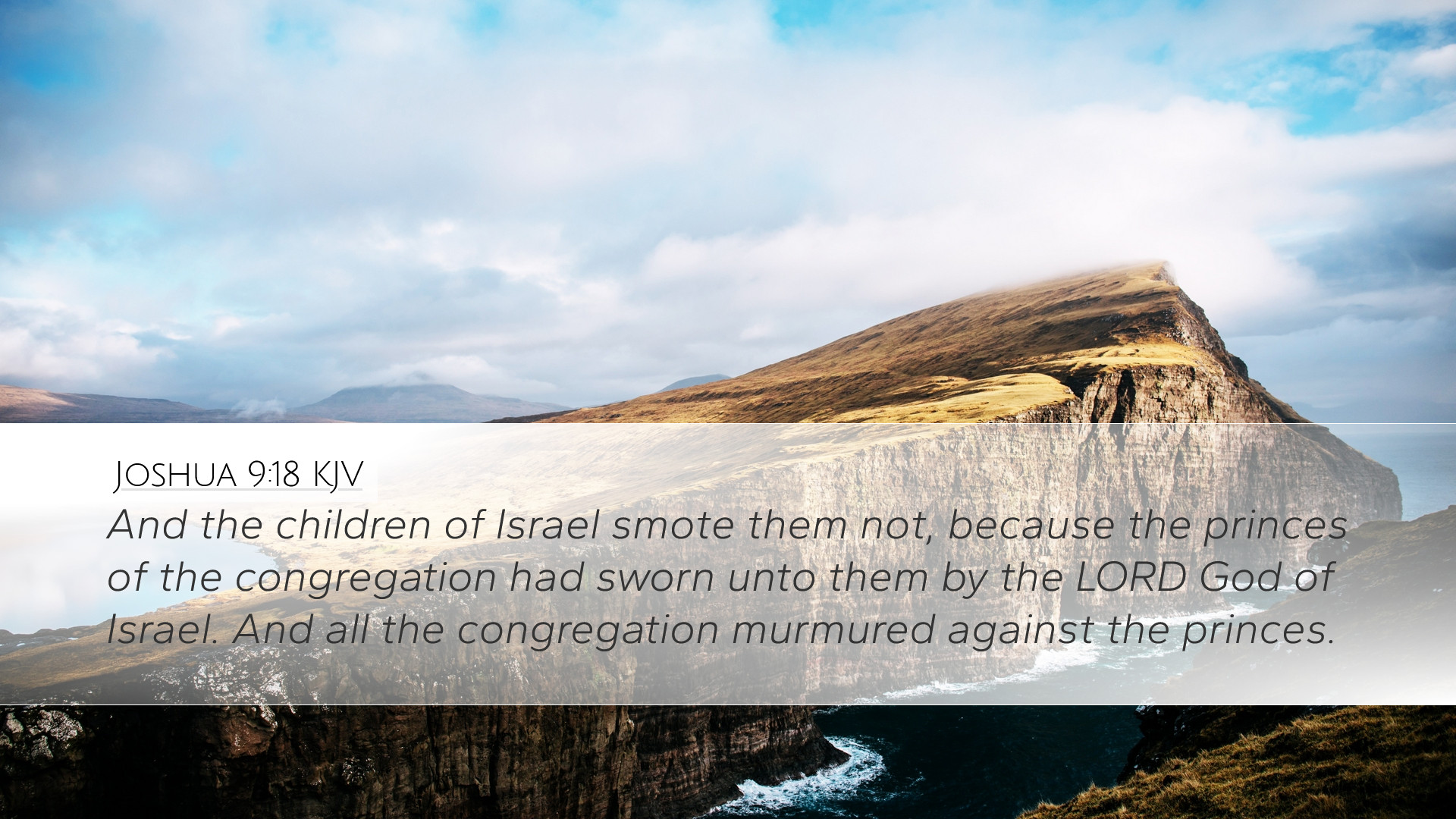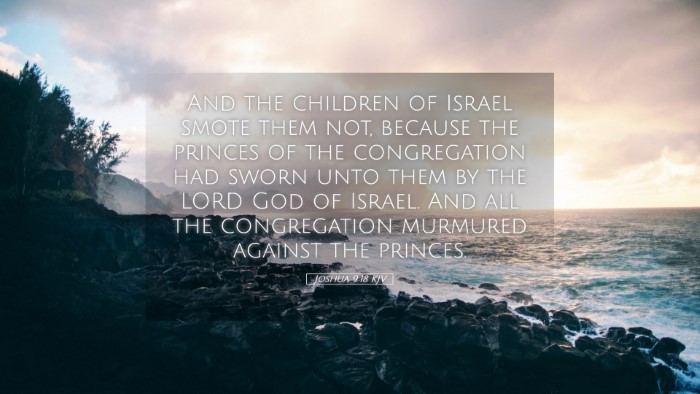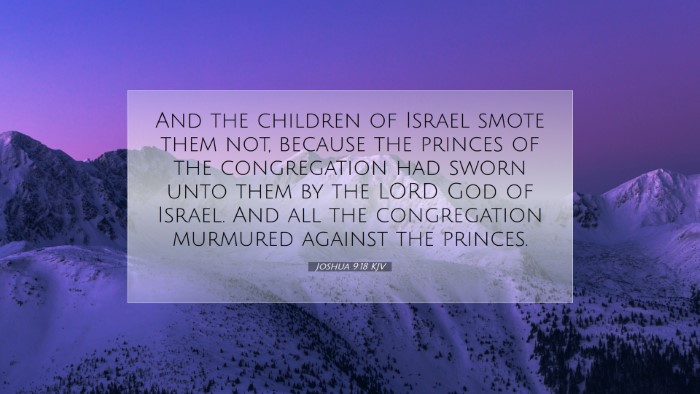Commentary on Joshua 9:18
Text of the Verse: "And the children of Israel smote them not, because the princes of the congregation had sworn unto them by the LORD God of Israel. And all the congregation murmured against the princes."
Introduction
This passage from Joshua reveals critical lessons on integrity, leadership, and the nuances of covenantal obligations. The Gibeonites, through deception, sought to secure their safety and in turn, the Israelites were caught in the moral dilemma of adhering to their oath made before God. The implications of this event echo through both theological and practical spheres, making it essential for pastors, students, theologians, and Bible scholars to unpack its depths.
Analysis of the Verse
1. The Importance of Oaths: The princes of Israel recognized the weight of their commitment. Matthew Henry underlines that the oath they made to the Gibeonites was sworn "by the LORD God of Israel," thus elevating the seriousness of their declaration. An oath, particularly one made before the Lord, is profoundly binding and reinforces the integrity that leaders must uphold.
2. The Response of the Congregation: The murmuring of the congregation signifies the discontent among the Israelites regarding the princes' decision. Albert Barnes highlights that this reaction is indicative of the human propensity to question authority when fear and uncertainty arise. Their displeasure suggests a crisis of confidence in leadership, emphasizing the need for leaders to maintain transparency and earn the trust of those they lead.
3. The Nature of Deception: The Gibeonites used cunning tactics to evade destruction, thereby sparking a discussion about the moral ramifications of their approach. Adam Clarke notes that while the Gibeonites acted in self-preservation, the ethical implications of their deception pose questions about human motives and God’s sovereignty in establishing His will through imperfect human actions.
Theological Implications
1. Divine Sovereignty and Human Responsibility: This passage intricately weaves the themes of God's sovereign plan with the responsibilities of the Israelites. It illustrates how divine purposes can unfold through human decisions—both wise and foolish. For scholars, this interaction invites a deeper theological discourse on how God's providential governance aligns with human free will.
2. The Weight of Covenants: A deeper understanding of biblical covenants emerges from this incident. The Israelites sworn oath emphasizes the need for holiness and truthfulness in dealings. As believers, the call to honor one's word reflects a character that aligns with God’s nature. Commentators collectively reflect on the ramifications of breaking a covenant, as seen later in the narratives of Israel's history and the eventual consequences that follow.
3. Community Dynamics: The discontent among the congregation regarding the leaders’ oath showcases how communities react to leadership decisions. This highlights the importance of discussing decisions with the community to promote unity. Scholars might explore the implications such dynamics have in contemporary church governance and decision-making processes.
Practical Applications
1. Leadership Integrity: Today’s leaders, both secular and spiritual, can learn valuable lessons from this passage. The importance of maintaining integrity even in difficult circumstances cannot be overstated. Leaders are called to uphold their commitments and guide their constituencies with transparency and diligence.
2. Navigating Moral Dilemmas: This scripture serves as a case study for grappling with complex ethical situations. Whether in personal decision-making or organizational dilemmas, individuals must consider how to faithfully respond while upholding their commitments to God and others.
3. Community Engagement: The murmuring of the Israelites signifies the necessity of community involvement in decision-making. Pastors can take from this the need to actively engage their congregations in dialogues around significant decisions, fostering an environment of trust and collaboration.
Concluding Thoughts
Joshua 9:18 stands not only as a historical account but also as a transformative narrative that can guide contemporary Christian life. Through the engagement of public domain commentaries, we can appreciate the depth and breadth of insights concerning the interactions between divine command and human action. As we reflect on the implications of our commitments made before God, let us strive to emulate the integrity expected of us as God's people. It is through such reflection that leaders, scholars, and congregants alike can cultivate a deeper awareness of their roles in God’s unfolding story.


